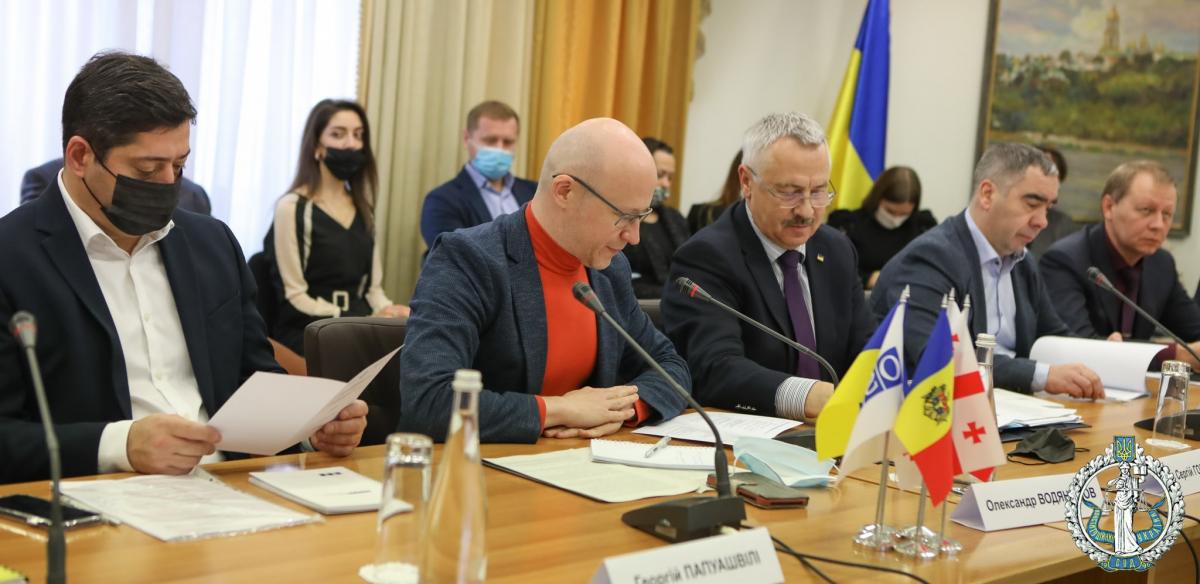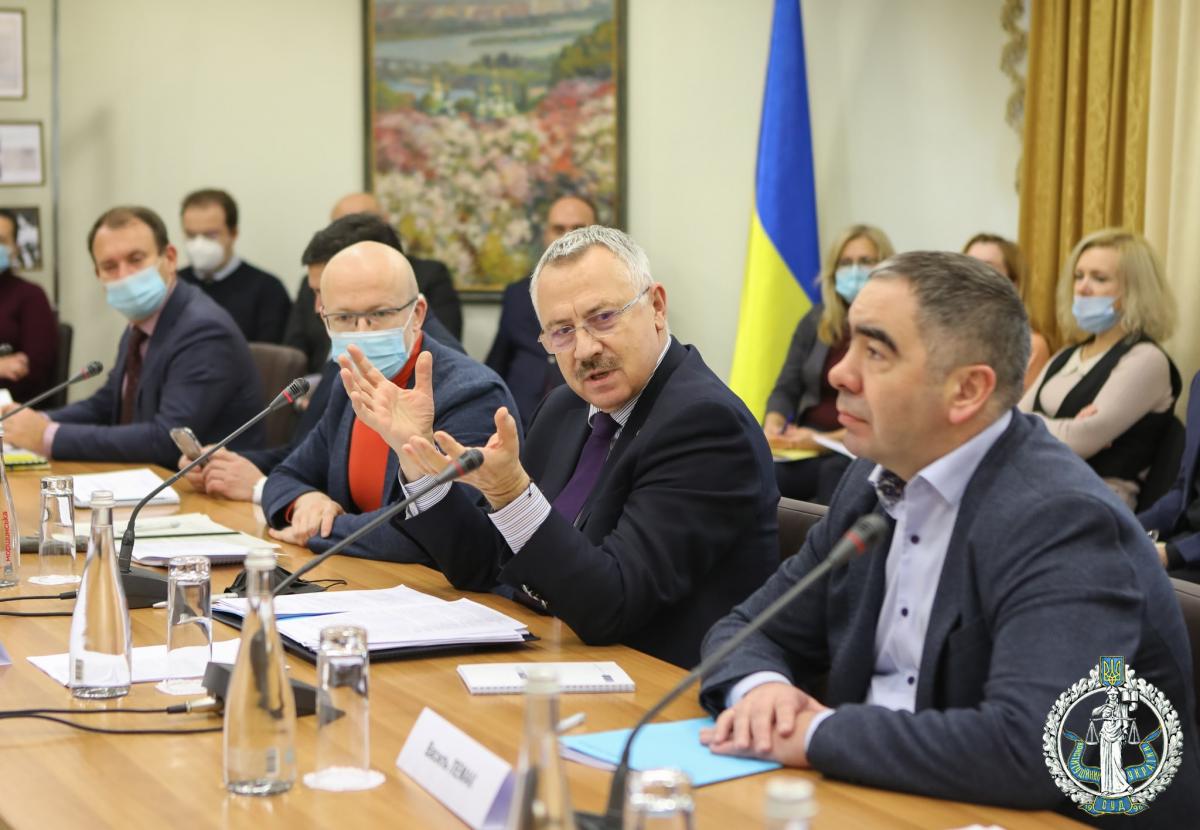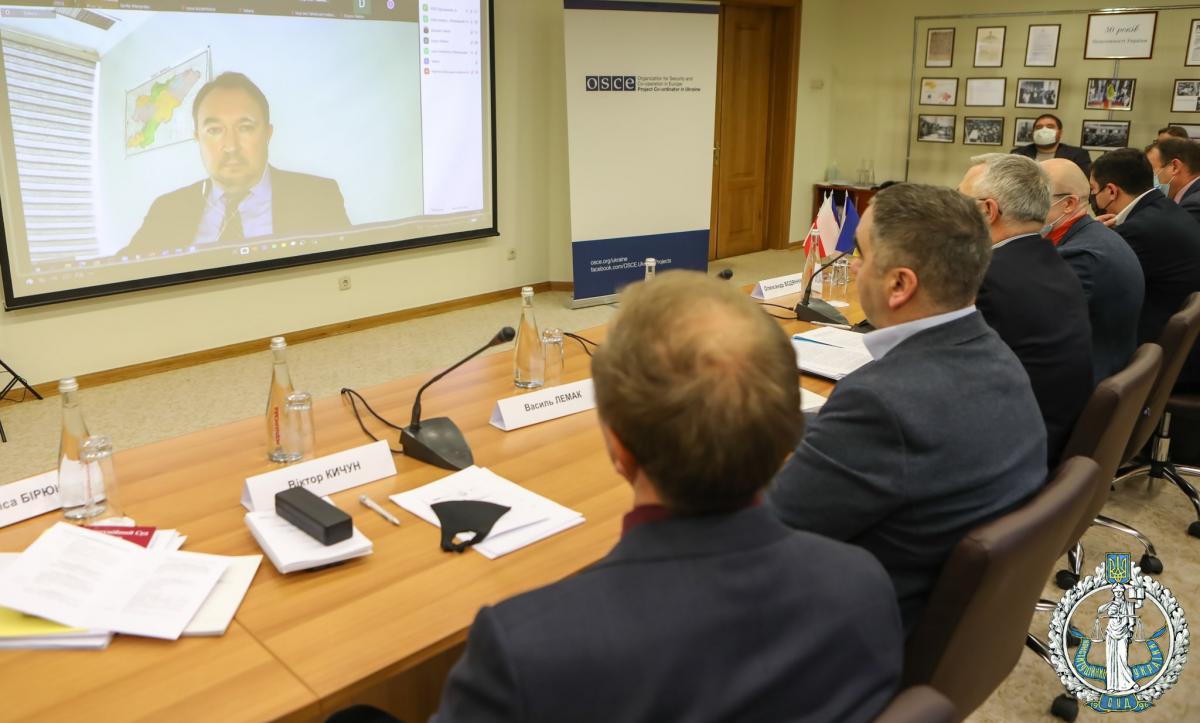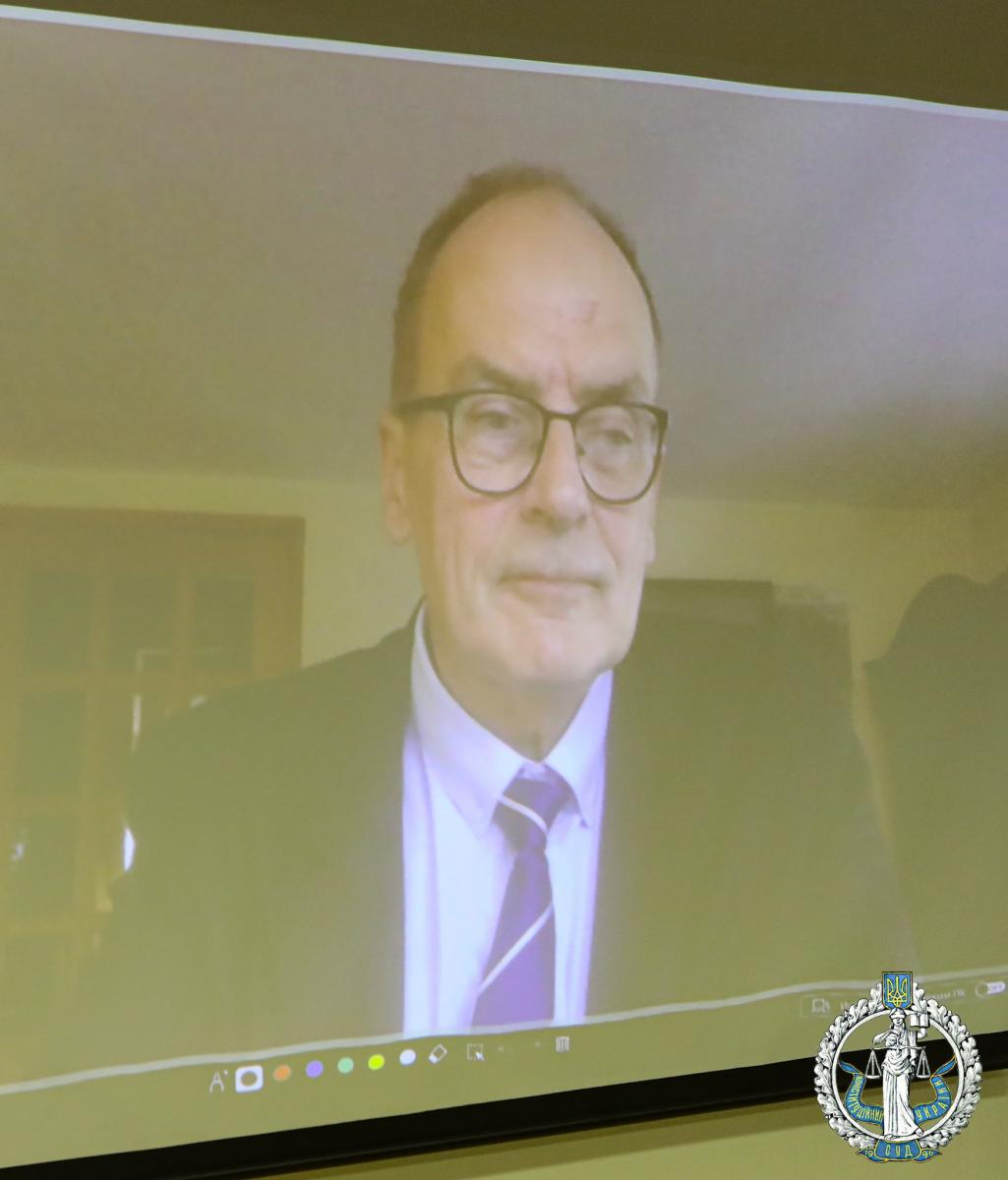On November 26, the Constitutional Court of Ukraine hosted a professional discussion on “International and National Experience in the Functioning of the Institute of Amicus Curiae.”
 The event was attended by Deputy Chairman of the Constitutional Court of Ukraine Serhiy Holovaty, Judges of the Court Viktor Horodovenko, Viktor Kychun, Viktor Kolisnyk, Vasyl Lemak, Oleh Pervomaiskyi, First Deputy Head of the Court Secretariat - Head of the Organizational Work Department Larysa Biriuk, employees of the services of judges and the Secretariat of the Court, Special Advisors in the Constitutional Court of Ukraine Mirosław Granat, Alexandru Tănase, George Papuashvili and Oleksandr Vodyannikov, National Legal Advisor to the OSCE Project Co-ordinator in Ukraine.
The event was attended by Deputy Chairman of the Constitutional Court of Ukraine Serhiy Holovaty, Judges of the Court Viktor Horodovenko, Viktor Kychun, Viktor Kolisnyk, Vasyl Lemak, Oleh Pervomaiskyi, First Deputy Head of the Court Secretariat - Head of the Organizational Work Department Larysa Biriuk, employees of the services of judges and the Secretariat of the Court, Special Advisors in the Constitutional Court of Ukraine Mirosław Granat, Alexandru Tănase, George Papuashvili and Oleksandr Vodyannikov, National Legal Advisor to the OSCE Project Co-ordinator in Ukraine.
Serhiy Holovaty welcomed the participants of the international event and noted that the cooperation between the Constitutional Court of Ukraine and the Special Advisors of the Court is important. Speaking about the preconditions for establishing the institute of amicus curiae in Ukraine, Serhiy Holovaty noted that the institute of special advisors was introduced by the Law of Ukraine “On the Constitutional Court of Ukraine” of July 13, 2017 to provide expert assistance in constitutional proceedings upon constitutional complaints. In Ukraine, individuals were granted the right to apply directly to the Constitutional Court only 4 years ago, thus, the scientific and practical experience of special advisors is useful in considering such cases in the Constitutional Court.
Serhiy Holovaty spoke about the various dimensions of the practical application of the institute of amicus curiae and noted that the Constitutional Court is not currently granted the right to apply to the European Court of Human Rights for an consultative opinion in accordance with Protocol No. 16, although the need for this is higher for the Constitutional Court than for the Supreme Court.
Oleksandr Vodyannikov, National Legal Advisor to the OSCE Project Co-ordinator in Ukraine, Mirosław Granat, Alexandru Tănase and George Papuashvili, Special Advisors in the Constitutional Court of Ukraine, shared their experience in applying the institute of amicus curiae.
In his speech, Oleksandr Vodyannikov focused on the concept, functions and procedural aspects of the institute of amicus curiae.
According to him, this institute has a powerful potential that needs to be applied. According to Oleksandr Vodyannikov, this effective mechanism will provide an opportunity to establish a dialogue with democratic institutions and society.
He outlined the models, classifications, types of the amicus curiae briefs and identified the subjects that can provide them. The speaker also mentioned several basic functions of amicus curiae, in particular, he emphasised the information, fundamental and supporting functions of legal argumentation.
Alexandru Tănase, the President of the Constitutional Court of the Republic of Moldova (2011–2017), a key GIZ expert in the EU Rule of Law Program focused on “Amicus curiae briefs of the Venice Commission in the jurisprudence of the bodies of constitutional jurisdiction”.
Mirosław Granat, Professor of Constitutional Law at the Cardinal Stefan Wyszyński University (Warsaw), former judge of the Constitutional Tribunal of the Republic of Poland informed the audience about the experience of applying amicus curiae briefs in the jurisprudence of the Constitutional Tribunal of the Republic of Poland.
George Papuashvili, International Legal Advisor, Minister of Justice of Georgia (2004-2005), Chairman of the Constitutional Court of Georgia (2006-2016) spoke about amicus curiae briefs as a tool for involving civil society in constitutional proceedings, in particular the experience of the Constitutional Court of Georgia.
For reference. In order to provide expert assistance in constitutional proceedings upon constitutional complaints, special advisors were engaged in the Constitutional Court of Ukraine.
According to Article 69 of the Law of Ukraine “On the Constitutional Court of Ukraine”, a special advisor may provide a written substantiated legal opinion (amicus curiae brief) before the case is deliberated by the Senate or the Grand Chamber.





